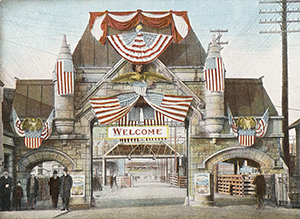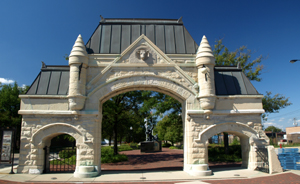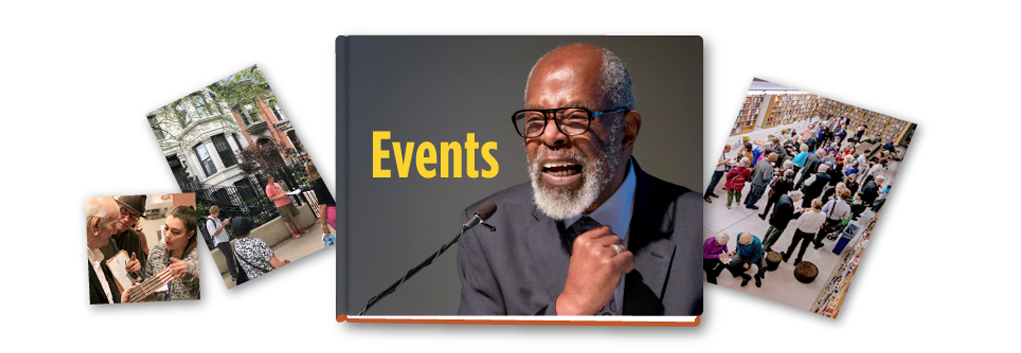Union Stock Yards Gate

c. 1901-1907
Exchange Aveue at Peoria Street, Chicago
The Union Stock Yard Gate features prominently in Upton Sinclair’s 1906 novel, The Jungle, which offered social criticism of the meatpacking industry through the horrific experiences of Lithuanian immigrant Jurgis Rudkus and his family. The book brought public outrage to the industry’s cruel treatment of workers and its blatantly unsanitary practices. President Theodore Roosevelt’s passing of the Pure Food and Drug Act in 1906 is commonly…
read moreThe Union Stock Yard Gate features prominently in Upton Sinclair’s 1906 novel, The Jungle, which offered social criticism of the meatpacking industry through the horrific experiences of Lithuanian immigrant Jurgis Rudkus and his family. The book brought public outrage to the industry’s cruel treatment of workers and its blatantly unsanitary practices. President Theodore Roosevelt’s passing of the Pure Food and Drug Act in 1906 is commonly believed to have been influenced.by the novel. The Union Stock Yards once covered nearly 500 acres of land, and thrived for a century until its closing in 1971. The limestone gate, part of Burnham & Root’s original design, is one of the few surviving artifacts, and was designated a Chicago Landmark on Feb. 24, 1972. According to the Chicago Landmarks website, the steer head over the central arch represents Union Stock Yard and Transit Company founder John B. Sherman’s prize bull, Sherman. The poet Carl Sandburg had the Union Stockyards in mind when he famously wrote about Chicago as "hog butcher to the world." The United for Libraries’ Literary Landmarks program at one time commemorated the opening of The Jungle with a dedication at the Gate; however, the plaque is no longer in place there.

Frederick J. Nachman, 2017








